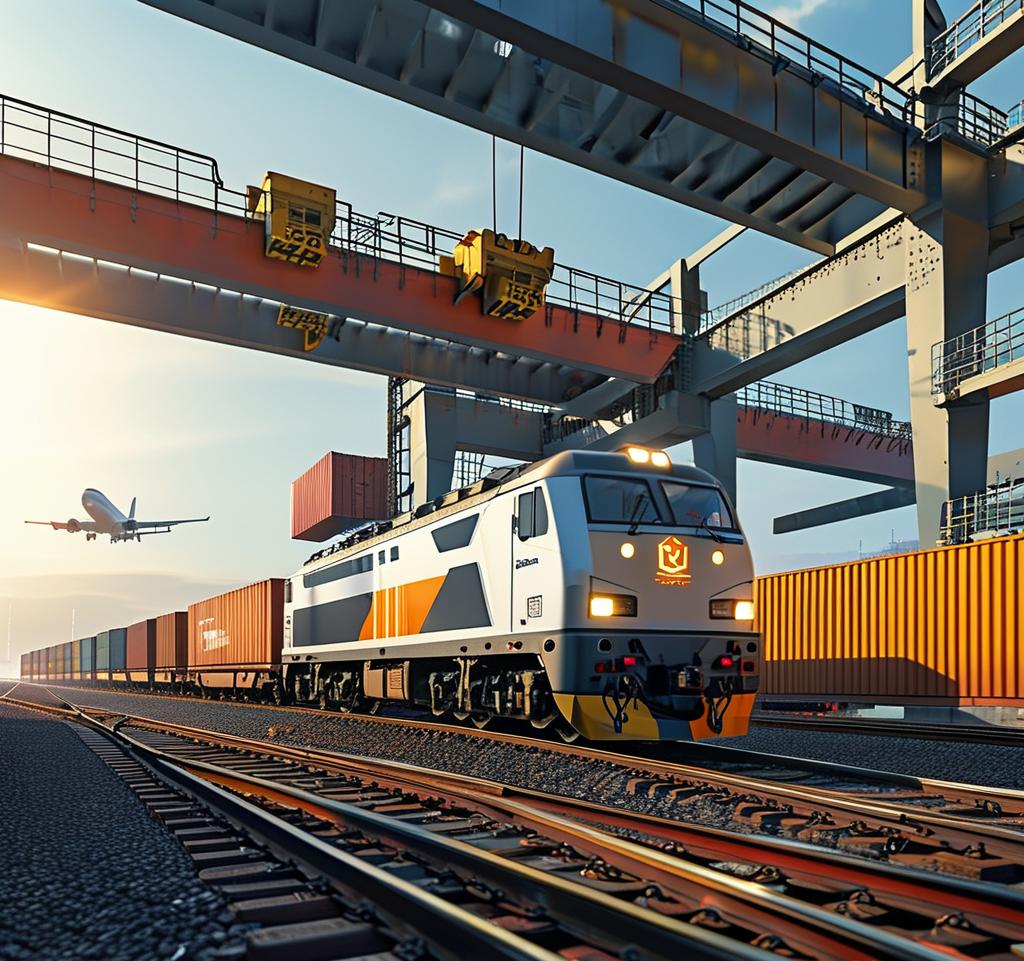- By TOP CHINA FREIGHT
- July 18, 2025
- Shipping
Germany is one of China’s top trading partners in Europe, with millions of tons of goods moving annually between the two countries. Whether you’re importing machinery, electronics, auto parts, or consumer goods, working with a professional freight forwarder can save you time, money, and unnecessary complications.
In this guide, we’ll explain how to find a reliable freight forwarder from China to Germany, what services they offer, and what to look for to ensure your international shipping is efficient and secure.

1. Why Use a Freight Forwarder?
A freight forwarder is a logistics specialist that manages the transportation of goods across international borders. They coordinate between carriers, customs agents, and warehouses to ensure your shipment is delivered on time and in compliance with all regulations.
Typical services include:
- Booking air or ocean freight
- Pickup and consolidation
- Export/import documentation
- Customs clearance in Germany
- Delivery to final destination (door-to-door)
- Cargo insurance and real-time tracking
2. Choose the Best Shipping Method: Sea, Air, or Rail Freight
Depending on your shipment’s size, urgency, and budget, your freight forwarder can help you choose the right mode:
| Shipping Mode | Ideal For | Transit Time | Cost Level |
|---|---|---|---|
| Sea Freight | Bulk cargo, non-urgent goods | 30–40 days | Economical |
| Air Freight | Urgent, high-value, small shipments | 5–10 days | Expensive |
| Rail Freight | Mid-sized cargo, faster than sea | 18–25 days | Moderate |
Sea freight is most commonly used for China–Germany trade, but rail freight via the China-Europe Railway Express is growing in popularity for being faster than sea and cheaper than air.
3. What to Look for in a Freight Forwarder (China to Germany)
Your freight forwarder should understand:
- EU customs regulations
- EORI number requirements
- HS code classifications
- CE certification and product conformity for imports
Forwarders with agents or offices in both China and Germany can provide better communication, faster updates, and seamless door-to-door service.
Look for services such as:
- Port-to-port, door-to-door, DDP (Delivered Duty Paid)
- Consolidation (for LCL) or full container load (FCL) handling
- Multimodal shipping (e.g., rail + truck)
A good forwarder provides quotes with all components listed, such as:
- Freight charges
- Handling fees
- Documentation
- Customs clearance
- Delivery charges (if needed)
Avoid forwarders with vague or “too good to be true” pricing.
4. Where to Find a Freight Forwarder From China to Germany
| Source | Description |
|---|---|
| Alibaba Logistics | Suppliers may recommend trusted forwarders |
| Freight Marketplaces | Sites like Freightos or ShipHub allow price/service comparisons |
| Google & LinkedIn | Search “freight forwarder China to Germany” + check reviews |
| Trade Shows | Visit Canton Fair, Transport Logistic Munich, or logistics expos |
| Industry Referrals | Ask importers or exporters in your network |
5. Key China–Germany Freight Routes
| Origin City (China) | Destination (Germany) | Mode | Estimated Transit Time |
|---|---|---|---|
| Shanghai | Hamburg | Sea Freight | 30–40 days |
| Shenzhen/Yantian | Bremerhaven | Sea Freight | 32–38 days |
| Guangzhou (CAN) | Frankfurt (FRA) | Air Freight | 5–8 days |
| Yiwu / Chengdu | Duisburg / Hamburg | Rail Freight | 18–25 days |
6. Questions to Ask a Freight Forwarder
- Do you handle customs clearance in Germany?
- Can you provide DDP or door-to-door delivery?
- Are you experienced with EU import regulations and CE compliance?
- Do you offer cargo tracking and insurance?
- Can you help with warehousing or fulfillment in Germany?
7. Red Flags to Avoid
- Extremely low quotes with little explanation
- No legal registration or business license
- Lack of experience with Germany/EU regulations
- Poor communication or long response times
- No tracking or cargo insurance options
Conclusion
Finding a reliable freight forwarder from China to Germany is a key step in building an efficient and profitable supply chain. Focus on companies that offer experience, transparency, and comprehensive logistics solutions tailored to EU trade regulations.
Whether you’re shipping by sea, air, or rail, the right forwarder will ensure your cargo arrives safely, on time, and without unexpected costs. Take the time to compare providers, request detailed quotes, and build a partnership with a logistics expert you can trust.
Need a Shipping Quote?
Click below to get a free, no-obligation quote from TJ China Freight.
We’ll respond within 24 hours with the best shipping options for your cargo.
FAQ:
Q1: How long does sea shipping take from China to Germany?
Sea freight takes around 30–40 days depending on the port and schedule.
Q2: Is rail freight a good option?
Yes. Rail freight is faster than sea (18–25 days) and more affordable than air. It’s a great option for mid-sized shipments to cities like Duisburg or Hamburg.
Q3: Do I need to pay import duties in Germany?
Yes. Goods imported into Germany are subject to customs duties, import VAT (currently 19%), and must comply with EU standards. Your freight forwarder or customs broker can help calculate the costs.
Q4: How can I avoid scams when importing from China?
Verify the freight forwarder’s credentials, read customer reviews, and never pay full amounts upfront without contracts or documentation. Use verified platforms and ask for references.
Q5: What cannot be shipped to Germany from China?
Germany restricts imports of:
- Counterfeit or pirated goods
- Hazardous chemicals (without permits)
- Certain electronics lacking CE certification
- Endangered species products
- Explosives and narcotics
